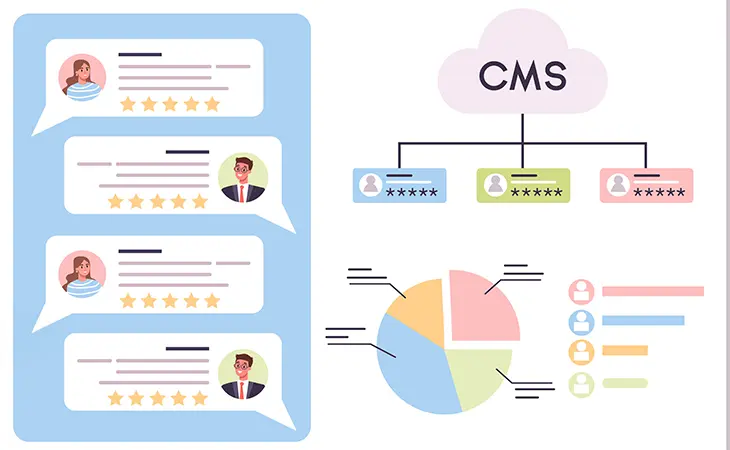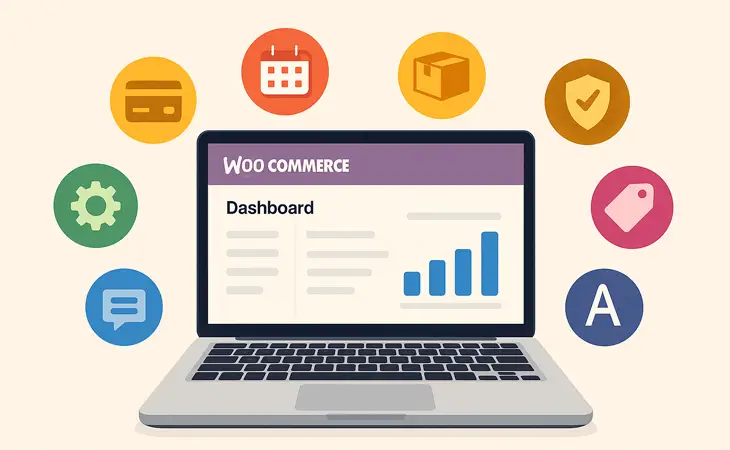Don’t Let a Platform Choose How You Run Your Store
When business owners ask me about WooCommerce vs Shopify in 2025, it’s usually the same question: “Which one is better for building an online store that actually grows?” It’s a fair question, because the platform you choose affects everything, from how fast you launch to how much freedom you’ll have to customize later on.
I’ve built dozens of e-commerce stores, from simple setups to custom-coded powerhouses. And I can tell you this: Shopify isn’t bad, but if you want real customization and long-term scalability, WooCommerce still wins. Let’s get technical.
Shopify in 2025: The Case for Simplicity
Shopify’s biggest advantage is ease of use. You can spin up a store fast, pick a theme, and start selling without touching a line of code. For entrepreneurs who don’t want to think about hosting, updates, or security patches, Shopify feels like plug-and-play.
But that simplicity comes with strings attached:
-
You’re locked into their ecosystem.
-
Advanced features almost always require monthly-paid apps.
-
Customization beyond what themes allow means hiring a developer who knows Liquid (Shopify’s proprietary language).
And this isn’t unique to Shopify – Wix has many of the same limitations. If you’ve ever wondered about that comparison, we covered it in detail here: Why Wix Is A Bad Idea.
WooCommerce in 2025: The Power of Open Source
Now let’s talk WooCommerce. This is where flexibility lives. As a WordPress plugin, WooCommerce integrates with the world’s largest CMS, meaning your store can be as simple or as powerful as you want.
-
Full Code Access: You’re not boxed in by a proprietary system. If you can imagine it, you can build it. I’ve created custom integrations for CRMs, ERP systems, and AI-driven product recommendations that Shopify simply couldn’t handle.
-
Plugin Ecosystem: Tens of thousands of plugins let you extend your store without reinventing the wheel. Need advanced shipping rules? Dynamic pricing? Subscription billing? It’s already built.
-
Cost Control: WooCommerce itself is free. You’ll pay for hosting and premium plugins, but you’re not stuck with Shopify’s monthly app creep.
-
SEO Control: Since WooCommerce runs on WordPress, you get full SEO optimization power. With Rank Math or Yoast, you can fine-tune metadata, schema, and speed in ways Shopify can’t touch.
In short: WooCommerce is the developer’s playground. If you want true ownership of your store, this is where you find it.
Real-World Example
I worked with a retailer who started on Shopify because it was quick. But by year two, they needed custom product bundles, regional pricing rules, and a checkout that tied directly into their inventory software. Shopify said: “There’s an app for that.” But it was three different apps, all subscription-based, that didn’t even play nice together.
We rebuilt the store on WooCommerce with a custom theme and a few targeted plugins. Everything worked natively, no hacks, no recurring app costs. Their site speed improved, their checkout flow was smooth, and – no surprise – sales went up.
The Verdict: WooCommerce vs Shopify in 2025
Here’s the bottom line.
-
If you’re brand new, need speed to launch, and don’t care about long-term flexibility, Shopify works.
-
But if you’re building a serious business, want control, and care about performance, WooCommerce is the better bet.
E-commerce in 2025 is about more than just “getting online.” It’s about creating custom experiences that make customers return. And for that, WooCommerce gives you the tools and freedom that Shopify simply can’t match.
Final Thoughts
The debate over WooCommerce vs Shopify in 2025 really comes down to ownership vs convenience. Shopify owns your ecosystem, you rent it. WooCommerce hands you the keys to the whole store.
For sellers who want to innovate, integrate, and grow without platform limits, WooCommerce is the smarter choice. I’ve built enough custom WooCommerce stores to see firsthand: when you want real power, this is where you get it.
Further Reading
Explore more insights beyond WooCommerce vs Shopify in 2025 to help you choose the right platform and grow your online store:
- Rocket Web Designer – Essential WooCommerce Plugins Every E-Commerce Business Needs in 2025
- Rocket Web Designer – The Real Cost of a Cheap Website (And Why It Hurts More in 2025)
- Search Engine Journal – WooCommerce vs Shopify: A Detailed Comparison
- Smashing Magazine – E-Commerce Performance Case Studies
Ready to Fix Your Website for Good?
Let's Grow Your Business Online
From websites to automation, we’ve helped 100+ business owners grow online




